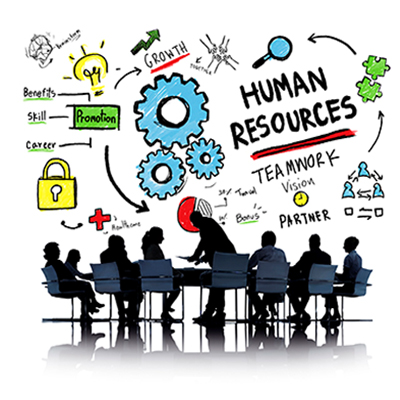What do CEOs Expect From Human Resources? | Aparna Sharma | Senior HR Professional & Certified Corporate Director I Editor’s Collection
 Chief Executive Officers are as distinct as the companies they lead or the people that work with them. What they want from Human Resources could be as distinct, so I asked some key Executive friends about their expectations from HR. This is not exhaustive, however clearly indicative. However, within the control group, it seems that where HR is concerned, there are some common threads of expectations that, if followed, might lead the CEO and other Executives to a better understanding and appreciation of the difficulties HR faces. Meeting these expectations can as well help HR professionals to focus more on key internal customer’s deliverables.
Chief Executive Officers are as distinct as the companies they lead or the people that work with them. What they want from Human Resources could be as distinct, so I asked some key Executive friends about their expectations from HR. This is not exhaustive, however clearly indicative. However, within the control group, it seems that where HR is concerned, there are some common threads of expectations that, if followed, might lead the CEO and other Executives to a better understanding and appreciation of the difficulties HR faces. Meeting these expectations can as well help HR professionals to focus more on key internal customer’s deliverables.
Here, in no particular order, are 5 P’s of particular “wants” or “expectations” of the CEOs and the C-suite that I checked and specifically about their experiences with their HR departments.
1. PULSE – CEO’s want their HR leaders to know what is going on with their people and the business. They need a “go-to” group that can credibly inform them of how people are.
As one CXO suggested, “HR has to be in touch with its employees, departments, managers and be able to honestly inform the CEO of both the good and the bad.”
Likewise, from a former CHRO, “HR should understand which departments or geographic areas are struggling or are not engaged, and which are excelling. HR should be prepared with credible reasons as to why.”
2. PEOPLE – I once had a CEO jokingly say to me, “I would love my job if it wasn’t for the people.” Helping the CEO with their role in understanding, motivating, and improving the human capital of the business is critical for the HR role.
One VP of HR said, “HR should understand how to handle workforce issues when the business expands or contracts. They should also have some response to the question: How do we help people understand what is happening with our business strategy and how we are going forward?”
Yet another CXO said, “HR needs to be an accurate and unbiased judge of character/abilities to assist the CEO in important hiring/promotion decisions. The CEO should feel like he/she wants to discuss important promotion or hiring decisions with HR, which requires discretion as well as being a quick and accurate judge of abilities.”
Finally, this is from a COO, “HR also should remain unbiased about these decisions, and not get too emotional with the successes or failures of others. We can be too involved and biased, the CEO needs our help to be fair and accurate to make the best “people” choices possible.”
3. PROOF – Data Analytics may perhaps be the biggest necessity in HR.
HR can use data/metrics to draw correlations for the CEO on issues the organization is facing. They can also share such information to represent trends to expect. Examples of this from my years as a CHRO and a consultant would be:
A CEO thinking that their company is Baby Boomer friendly when it has no flexible work schedules, no retooling training, and they have no track record of hiring capable, qualified retirees. Solid, internal data helped change this CEO’s opinion.
Data showed a CEO that retention of relocated employees was VERY low. HR asked the question of the C-Suite, “Should this push the company to change the relocation process?” The process was changed.
Here is some practical advice to be the HR professional who can provide solutions. For years, HR has had a reputation of lacking practical, business-related alternatives. In this area, Dave Ulrich, noted HR guru, would invite HR professionals to be “credible activists”. That is, provide credible solutions and understand the business.
One CEO said, “If my HR Director gives me one more SHRM article as some kind of Holy Grail fix or idea for what we are facing, I will barf…”
A CFO suggested that HR should, “please, please, PLEASE give me affordable, practical ways to build excellent teams that drive profitability.”
A COO recommended, “As our HR Head continues to understand our business, her solutions become better and more practical.”
Please note the obvious distinction between the first two comments above versus the third. Getting beyond talking about being a business partner and achieving that is a real desire of both the CEO and the C-Suite!
4. PROTECTION – While we all hope that HR is not viewed as the corporate police force, we can be very enforcement oriented. In this regard, it seems CEO’s and Executives would like HR to be:
“A self-reliance builder for employees. Get the stuff that keeps people safe, secure and treated fairly and get it to the level of employee ownership.”
“A department that protects all employees and requires systems that ensure compliance to mitigate liabilities because employee issues are some of the biggest risks a business faces, especially in today’s environment.”
5. PROBLEMS WITH SOLUTIONS – A CFO friend described this in this manner: “HR needs to not be just an issue spotter, but also a problem solver. The CEO may decide not to adopt the solution, but at least try and offer a solution along with realistic cost/timing.”
Here is an example from one C-Suite member. “Our HR leader noted a real problem in our Company with turnover. As he described the problem, he then asked the Executive Team this question: “Does this company want employees to stay for a long period, for their career? This started a dialogue that yielded 3 specific things we, as a company, could do better.”
This idea also includes ensuring that HR is constantly evolving. One CEO said, “Please challenge yourselves so I don’t have to do it.” With such feedback, HR can continue to seek improvement in a world of work that is constantly changing by understanding and implementing the 6 P’s. This is not easy but what this exercise suggested was that CEOs and Executives do want HR to help them successfully run the business.
As a final thought, I give you a profound observation from a successful CEO answering this question: What is the best thing HR can provide for you as the CEO? The answer: “Please be a REAL, dedicated business partner.”


